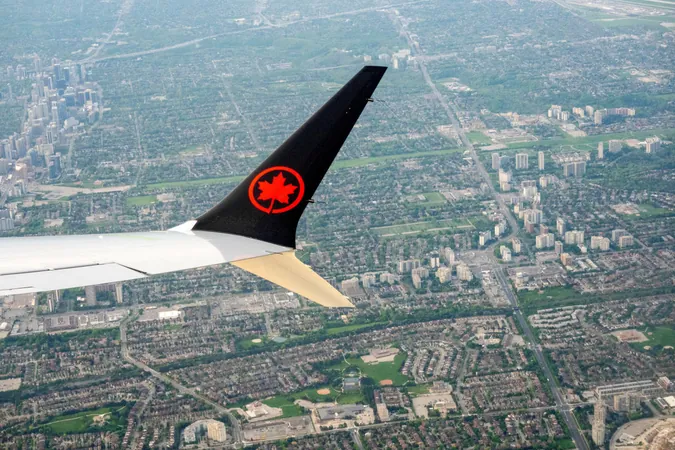
Air Canada Faces Ups and Downs Amid Pilot Agreement Vote: Are Shares Set to Soar?
2024-10-02
Air Canada Pilot Vote: A Pivotal Moment
As Air Canada (AC.TO) pilots prepare to vote on a crucial four-year contract with the airline, analysts are speaking up, declaring the airline is "significantly undervalued" compared to its competitors. This situation may present a golden opportunity for savvy investors, especially if the agreement receives a thumbs-up.
Potential Impact of Contract Ratification
Should the pilots ratify the contract, it’s expected to have immediate effects on Air Canada's upcoming quarterly results. The airline may face higher operational costs, and there's the considerable possibility that potential customers opted for alternatives due to strike fears. However, optimism is in the air, as TD Cowen analysts Tom Fitzgerald and Helane Becker assert that Air Canada is "taxiing towards outperformance." They maintain a "buy" rating on the stock with a price target of $19 per share, citing that the airline remains undervalued on an EV/EBITDA basis against fellow full-service carriers.
Stock Performance and Analyst Sentiment
Although fears surrounding pilot contract negotiations have weighed down the airline's stock price—down about 12% year-to-date—Fitzgerald and Becker believe that margins "have bottomed" this year and are poised for recovery. "Despite 2024 being turbulent for share prices," they claim, "we see healthy prospects as expectations moderate."
CEO's Perspective
CEO Michael Rousseau commented during the last quarterly conference call, expressing disappointment with the stock's performance despite the company's recovery efforts post-pandemic. While Air Canada has benefited from significant travel demand throughout 2023, there are growing worries about a potential dip in air travel demand.
Earnings Forecast and Analyst Opinions
Adding to the mix, analysts like Cameron Doerksen from the National Bank have also forecasted lower earnings for the airline due to the "strike threat-related noise." He holds an "outperform" rating for Air Canada, with a higher price target of $22, emphasizing that finalizing the pilot deal will lift a crucial weight off the stock's shoulders.
Market Conditions and Operational Costs
Amid concerns, there are signs of relief. Doerksen points out that while yields softened during the summer, forecasted capacity growth is set to slow later this year, suggesting a possible rebound in yield as the market stabilizes. The anticipated decrease in jet fuel prices could further cushion Air Canada's operational costs.
Union Decisions and Pilot Concerns
Yet, the uncertainty looms large—if the pilot union decides to reject the proposed agreement, the stock could face additional pressures. The union's leader, Charlene Hudy, has even signaled her resignation should the deal fail to pass, underscoring the critical nature of this agreement that could have prevented approximately 670 flight cancellations, affecting 110,000 passengers daily.
Financial Implications and Cost Management
While the total pay increase in the agreement appears generous, concerns from newer pilots about wage disparities linger. Doerksen estimates the overall cost increase linked to the deal to be about 2.5% over four years—manageable for the airline, provided the deal goes through smoothly.
Outlook and Conclusion
In a landscape marked by unpredictability, the outlook for Air Canada hinges on the outcome of the pilot vote, economic conditions, and the airline's ability to capitalize on recovering travel demand. Investors and industry watchers alike are on the edge of their seats, waiting to see if Air Canada can clear its runway for a take-off or if turbulence lies ahead. Stay tuned as this story continues to develop!









 Brasil (PT)
Brasil (PT)
 Canada (EN)
Canada (EN)
 Chile (ES)
Chile (ES)
 España (ES)
España (ES)
 France (FR)
France (FR)
 Hong Kong (EN)
Hong Kong (EN)
 Italia (IT)
Italia (IT)
 日本 (JA)
日本 (JA)
 Magyarország (HU)
Magyarország (HU)
 Norge (NO)
Norge (NO)
 Polska (PL)
Polska (PL)
 Schweiz (DE)
Schweiz (DE)
 Singapore (EN)
Singapore (EN)
 Sverige (SV)
Sverige (SV)
 Suomi (FI)
Suomi (FI)
 Türkiye (TR)
Türkiye (TR)